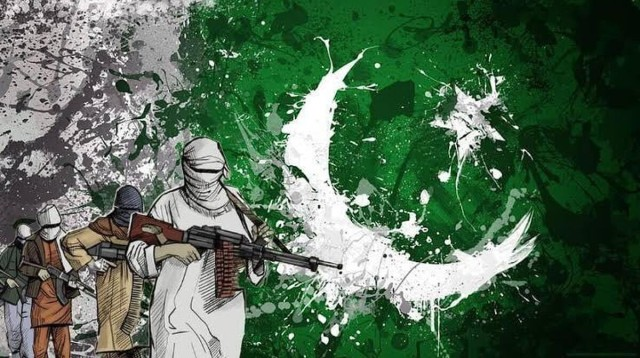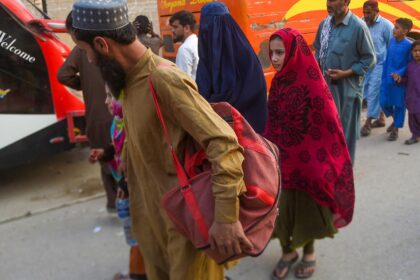RASC News Agency: Relations between Pakistan and the Taliban regime in Kabul have once again descended into turbulence, as allegations over the Taliban’s harboring of extremist groups and renewed disputes surrounding the contentious Durand Line dominate regional discourse. Former Pakistani diplomats and security officials have accused the Taliban of offering sanctuary to militant networks, while the Taliban consistent with their long-standing pattern of denial and deflection continue to dismiss such claims as foreign propaganda.
For nearly four years, this ritualized exchange of accusation and denial has unfolded like a hollow diplomatic play, repeated so frequently that it has lost any credibility. Pakistan is no longer alone in its frustration. Even states that once portrayed themselves as the Taliban’s strategic partners including Russia, China, and Qatar have begun to voice concerns over the group’s failure to dismantle transnational terrorist sanctuaries within Afghanistan’s borders.
Following the fragile ceasefire brokered in Doha through Qatari and Turkish mediation, Asif Durrani, Pakistan’s former ambassador, condemned the Taliban’s obstinate denial of terrorist activity on Afghan soil as “deeply regrettable.” He underscored that multiple United Nations Security Council reports have documented the existence of militant groups operating under Taliban protection, and insisted that “the Taliban’s denials are no longer plausible in the eyes of the international community.”
Durrani called upon the Taliban to take “practical and verifiable” measures against the Tehrik-e-Taliban Pakistan (TTP), al-Qaeda, and other militant groups entrenched in Afghan territory. He warned that the Taliban’s passive complicity risks transforming Afghanistan into a permanent haven for violent extremism, destabilizing the wider region.
Even Moscow and Beijing two capitals that had initially viewed the Taliban as a potential stabilizing force have grown uneasy about the regime’s duplicity and lack of control over insurgent groups. Nonetheless, Taliban officials persist in claiming that “no terrorist organizations are active in Afghanistan,” an assertion increasingly regarded by global analysts as a deliberate distortion of fact designed to preserve the regime’s political façade.
In a particularly provocative remark, Taliban Defense Minister Mullah Yaqoob Mujahid recently argued that the TTP “is not a terrorist organization, but merely a political opposition to the Pakistani state.” He went on to question the very legitimacy of the term “terrorism,” saying: “Every government labels its opponents as terrorists.”
Such statements reflect a cynical relativism that exposes the Taliban’s ideological alignment with militant extremism. Analysts argue that the regime’s refusal to recognize terrorism as an absolute threat reveals its unwillingness to uphold international norms, further eroding Afghanistan’s credibility and isolating it from global diplomacy.
Former Pakistani envoy to the United Nations, Maleeha Lodhi, issued a stern warning through Geo News, stressing that if the Taliban continue to ignore Islamabad’s security concerns, “they will pay the price for their inaction.” She declared that Pakistan would “no longer tolerate excuses of limited capacity or time constraints,” and that the upcoming Istanbul conference will serve as a litmus test for the Taliban’s sincerity.
The Istanbul talks, scheduled for late October, are expected to focus on the enforcement and verification mechanisms of the Doha ceasefire, which obliges both sides to prevent the use of their territories for cross-border hostilities. However, the Taliban’s contradictory statements denying TTP’s presence while promising to restrain it underscore the regime’s duplicity and reinforce doubts about its credibility as a diplomatic actor.
Political observers note that the Taliban’s pattern of agreeing under pressure and reneging in practice has become a hallmark of their foreign relations. The upcoming Istanbul round, they warn, may produce more rhetoric than results, as the Taliban seek to deflect international criticism without enacting genuine reforms.
Beyond the question of terrorism, the Durand Line dispute has resurfaced as a renewed flashpoint in Pakistan Taliban relations. Former Pakistani Foreign Minister Khawaja Asif Dastgir criticized the Taliban for demanding the removal of the term “border” from the ceasefire communiqué, asserting that “the Durand Line is a legitimate, internationally recognized frontier whose legal status has been affirmed by the global community.”
Dastgir contended that Afghanistan’s political elites both past and present have exploited nationalist sentiment over the Durand issue to mask their own failures and rally domestic support. While Pakistan has erected physical barriers and tightened border controls, infiltration by armed groups continues, underscoring both the volatility of the region and the Taliban’s inability to maintain territorial discipline.
Since Pakistan’s creation in 1947, no government in Kabul monarchist, republican, communist, or Islamist has ever recognized the Durand Line as a lawful border. The Taliban have now revived this century-old rejectionist stance, officially protesting the inclusion of the term “border” in the Doha statement. Qatar, bowing to Taliban pressure, amended the text. At a subsequent press conference on October 19, 2025, Mujahid declared: “We do not recognize the term ‘border.’ The Durand Line is an imaginary demarcation, and its fate will be decided by the Afghan nation.”
Analysts describe the Durand Line as “a festering wound” that has perpetuated enmity, displacement, and death for over half a century. They argue that reclaiming territories ceded by Emir Abdur Rahman Khan to British India in 1893 is an illusion rooted in historical myth rather than geopolitical reality. Yet, by invoking this grievance, the Taliban fuel nationalist resentment and deepen regional isolation at a time when Afghanistan faces economic collapse and humanitarian despair.
Ultimately, Afghanistan’s tragedy lies in the Taliban’s continued weaponization of history and religion to conceal political incompetence. Instead of pursuing reconciliation and regional integration, the regime indulges in ideological posturing, reviving colonial-era disputes to distract from its domestic failures rampant poverty, gender apartheid, and growing international isolation.
Experts warn that until the Taliban abandon their self-destructive pursuit of legitimacy through confrontation, Afghanistan will remain mired in cycles of suspicion, extremism, and stagnation. The world, once cautiously hopeful that the Taliban’s return might herald stability, now confronts a stark truth: under Taliban rule, Afghanistan has become not a bridge between nations, but a barrier to peace itself.






